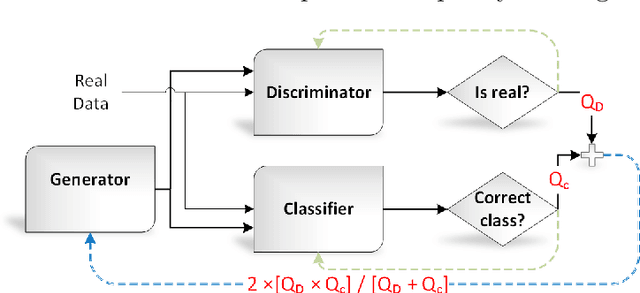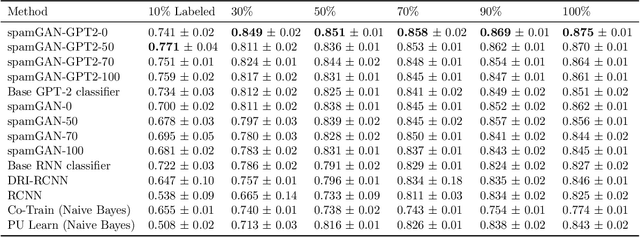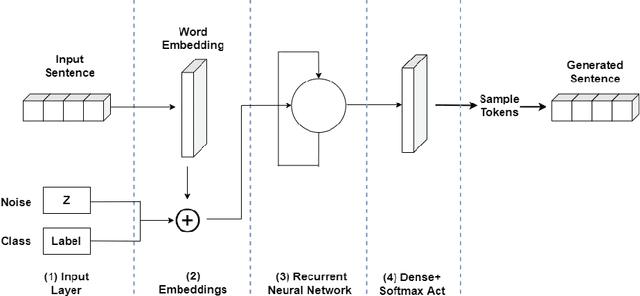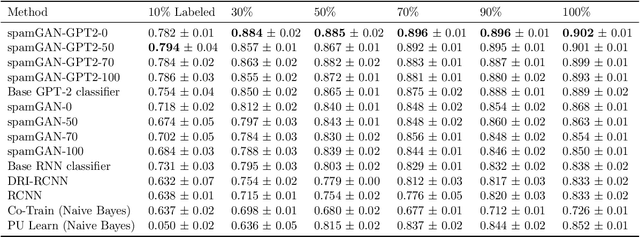Gray Stanton
Multi-Channel Factor Analysis: Identifiability and Asymptotics
Jul 26, 2024Abstract:Recent work by Ram\'irez et al. [2] has introduced Multi-Channel Factor Analysis (MFA) as an extension of factor analysis to multi-channel data that allows for latent factors common to all channels as well as factors specific to each channel. This paper validates the MFA covariance model and analyzes the statistical properties of the MFA estimators. In particular, a thorough investigation of model identifiability under varying latent factor structures is conducted, and sufficient conditions for generic global identifiability of MFA are obtained. The development of these identifiability conditions enables asymptotic analysis of estimators obtained by maximizing a Gaussian likelihood, which are shown to be consistent and asymptotically normal even under misspecification of the latent factor distribution.
Leveraging GPT-2 for Classifying Spam Reviews with Limited Labeled Data via Adversarial Training
Dec 24, 2020



Abstract:Online reviews are a vital source of information when purchasing a service or a product. Opinion spammers manipulate these reviews, deliberately altering the overall perception of the service. Though there exists a corpus of online reviews, only a few have been labeled as spam or non-spam, making it difficult to train spam detection models. We propose an adversarial training mechanism leveraging the capabilities of Generative Pre-Training 2 (GPT-2) for classifying opinion spam with limited labeled data and a large set of unlabeled data. Experiments on TripAdvisor and YelpZip datasets show that the proposed model outperforms state-of-the-art techniques by at least 7% in terms of accuracy when labeled data is limited. The proposed model can also generate synthetic spam/non-spam reviews with reasonable perplexity, thereby, providing additional labeled data during training.
GANs for Semi-Supervised Opinion Spam Detection
Mar 19, 2019



Abstract:Online reviews have become a vital source of information in purchasing a service (product). Opinion spammers manipulate reviews, affecting the overall perception of the service. A key challenge in detecting opinion spam is obtaining ground truth. Though there exists a large set of reviews online, only a few of them have been labeled spam or non-spam. In this paper, we propose spamGAN, a generative adversarial network which relies on limited set of labeled data as well as unlabeled data for opinion spam detection. spamGAN improves the state-of-the-art GAN based techniques for text classification. Experiments on TripAdvisor dataset show that spamGAN outperforms existing spam detection techniques when limited labeled data is used. Apart from detecting spam reviews, spamGAN can also generate reviews with reasonable perplexity.
 Add to Chrome
Add to Chrome Add to Firefox
Add to Firefox Add to Edge
Add to Edge